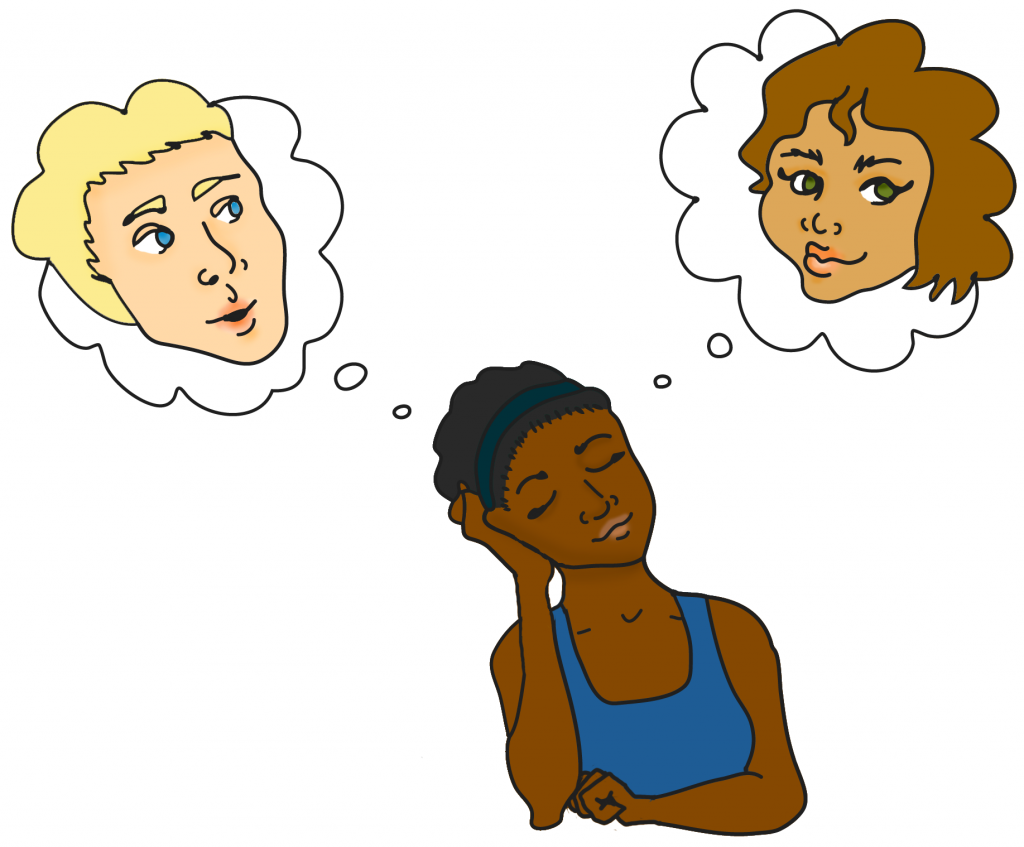Lesb-I-Am? Exploring the Concept of Sexual Fluidity
She had this spark about her that lit up my heart like the way fire burns from a matchstick. Our relationship started out slow. It was like when someone scratches a matchstick against a box to get it to ignite. I kept scratching to see if there was a possible flame between us, but always hesitated when I could sense the flame about to ignite. The flame was always there, though. We both knew that as we felt the fire scorching through our veins at the slightest touch of our skin together. I never liked to play with fire, though. So, I just patiently waited until the matchstick burnt out.
Or at least I tried. When she told me that she was considering dating someone else, this news hit our flame like the gust of air that it needed to stay alive. I knew that I had to say something. All the while battling with these emotions and decisions, there was one pressing question that had been lingering in my mind since the moment I knew that I liked her: Does this make me a lesbian?
In my opinion, no, I do not believe I am a lesbian. I feel that if I embrace that label, then others would assume that I only have romantic feelings for women, which is not true. I knew that if a romantic relationship occurred between us, however, society would have other choice words for someone like me, if I refused lesbian: bisexual, queer, confused and so many others. Yet, none of those words felt like me.
While I am still attracted to men, I found the label of being bisexual to be constricting. It can sometimes be interpreted as one who likes “men” and “women” rather than one who likes male-bodied and female-bodied people. For some, there may not be a difference, but in fact, being male-bodied and female-bodied is biological; it is based off of the genitalia with which you are born.
To be a man, however, does not mean that you have to be male-bodied and vice versa. To be a man or a woman is an expression of gender. The Gender Equity Resource Center at UC Berkeley defines gender as “ a socially constructed system of classification that ascribes qualities of masculinity and femininity to people” that is usually associated with one’s sex rather than their personal beliefs on their gender identity.[1]
For me, I believe that people are just people and that one’s genitalia should not dictate who is able to be attracted to them. There are too many amazing people in this world to limit yourself to only half of the population. Queer, which is a term also defined by the Gender Equity Resource Center as “a political statement, as well as a sexual orientation, which advocates breaking binary thinking and seeing both sexual orientation and gender identity as potentially fluid,” would seem to be the proper term to define me.[2]
While queer does encompass a lot of my beliefs about sexuality, I still feel as if queer does not accurately reflect who I am, especially while being at the Claremont Colleges. Queer should be an umbrella term, encompassing all forms of sexuality, but most importantly all types of people. I feel that the definition of queerness at the 5Cs, however, does not represent a harmonious blend of sexualities and people. Rather it has become the latest trend next to Toms shoes and being a raw vegan. It has become defined. It has become exclusive.
I feel like queerness at the 5Cs only has one look and one sound, and if you don’t fit the part, then you are automatically assumed as passing. Passing is when a person chooses to deny a part of himself or herself that is not easily or visibly identifiable. I do not deny my love of people, however, I also do not feel the need to wear my sexuality like a charm bracelet, nor do I look down on those that do. I do believe, however, that just because I do not follow the trends of queer culture, does not mean that I am trying to hide who I am. While I’m sure Tegan and Sarah is a great band, I would much rather be listening to Nas or Jay-Z, and I feel that those choices should not dictate my sexual identity.
I once remember asking a good friend about what it meant to be queer. She had looked at me somewhat baffled, not because I asked the question, but rather because she had said that the essence of being queer was that there was no definition. She told me that it was what you wanted it to be. In that moment, I had a hard time understanding such concrete ambiguity. Now in retrospect, her response has never sounded so clear. While I understand that we have sexual orientations and labels in our society to provide a greater sense of clarity and identity to who we are, I believe there are some parts of ourselves that language will never be able to define. I love people, and I believe that just being a person should be enough.
Unfortunately, I lost that girl. What I do know now, however, is that if I had listened to my heart rather than trying to figure out what sexual orientation I fit into, I would have realized that it did not matter. Love has no labels. Looking back, as the smoke painfully lingers in the air and clouds my eyes with tears every now and then, I will always remember the fire she has ignited in me that will light my path into future relationships.
[1] “Definition of Terms.” Gender Identity. Berkeley: UC Berkeley Gender Equity Resource Center. <http://geneq.berkeley.edu/lgbt_resources_definiton_of_terms.
[2] “Definition of Terms.” Queer. Berkeley: UC Berkeley Gender Equity Resource Center. <http://geneq.berkeley.edu/lgbt_resources_definiton_of_terms.

![[in]Visible Magazine](https://community.scrippscollege.edu/invisible/wp-content/uploads/sites/5/2011/04/Invisible-Masthead-2011-Spring1.png)








No comments yet... Be the first to leave a reply!